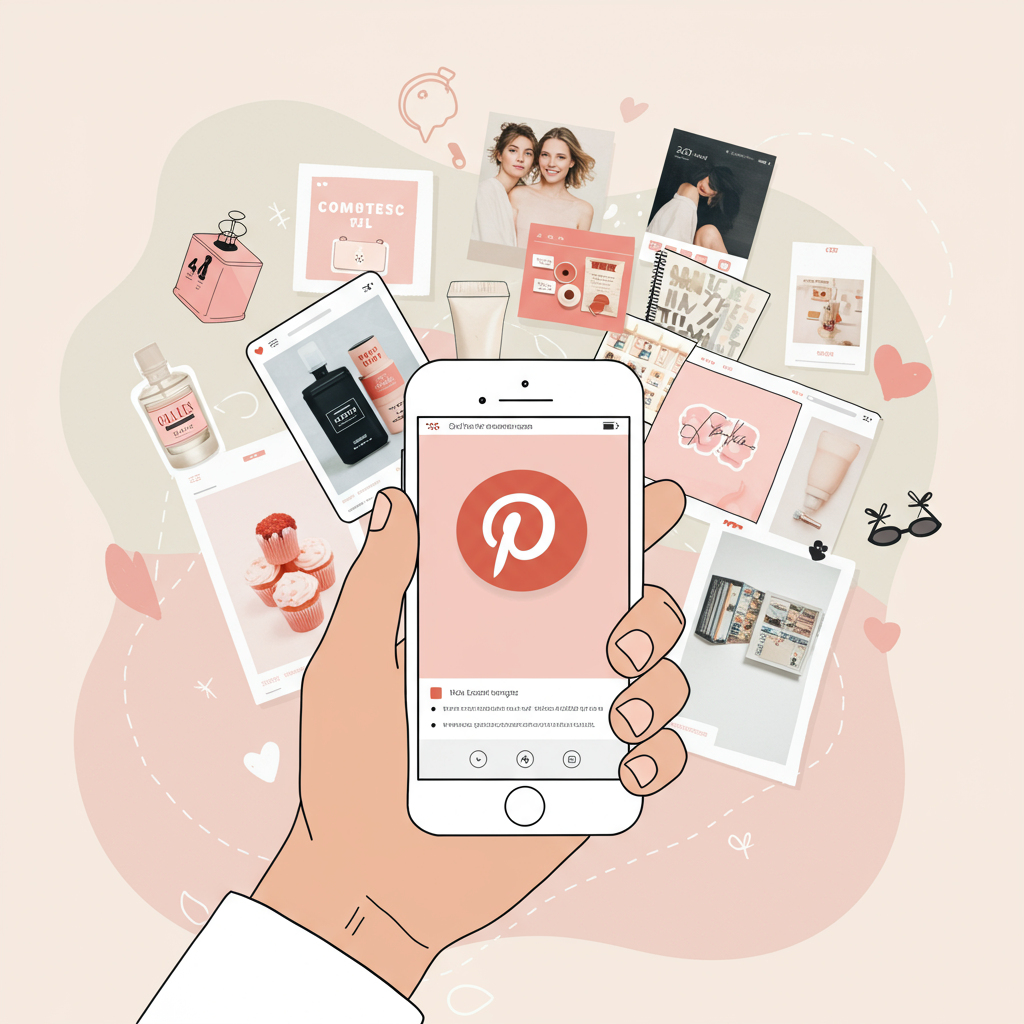Discover how leveraging the power of Pinterest influencers can unlock new growth opportunities for your e-commerce business.
As a merchant, I’m always on the lookout for innovative ways to expand reach and drive sales for my Shopify store. One platform that consistently stands out for its unique potential is Pinterest.
It’s not just a social media site; I see it as a powerful visual search engine and discovery tool, perfectly suited for e-commerce.
However, simply pinning your products isn’t always enough to cut through the noise. That’s where Pinterest influencers come into play.
I’ve found that collaborating with the right influencers on Pinterest can be a game-changer, connecting your products with highly engaged, purchase-intent audiences.
Unlike platforms focused on fleeting trends, Pinterest offers a long shelf-life for content. Pins can continue to drive traffic and sales months, even years, after they’re published.
This ‘evergreen’ nature makes influencer collaborations particularly valuable. An influencer’s pin can become a consistent source of referrals to your Shopify store.
My approach to Pinterest influencer marketing begins with understanding its unique ecosystem. It’s less about direct, hard-sell tactics and more about inspiration, discovery, and problem-solving.
People come to Pinterest to plan, dream, and find solutions, which aligns perfectly with showcasing products that fit into their lives or projects.
So, how do I go about finding the right Pinterest influencers for my Shopify brand? It starts with thorough research.
I often begin by using Pinterest’s own search bar. I’ll type in keywords related to my products or niche, looking for popular pins, boards, and profiles that consistently appear.
I also explore influencer marketing platforms, though I focus on those that have a strong emphasis on visual content and audience demographics relevant to Pinterest.
Another strategy I employ is analyzing my competitors. I look at who they’re collaborating with, or which popular pinners are featuring similar products, to identify potential partners.
Once I’ve identified a few potential candidates, the vetting process is crucial. It’s not just about follower count; I prioritize engagement and audience alignment.
I meticulously check their pins for saves, clicks, and comments. High engagement rates indicate an active and responsive audience, which is exactly what I want for my products.
I also delve into their audience demographics, if available. Do their followers match my ideal customer profile in terms of age, interests, and location? This is non-negotiable for me.
The quality and aesthetic of their content are paramount. Their visual style must align seamlessly with my brand’s image to ensure authenticity and a cohesive message.
I look for genuine interest in products similar to mine, rather than just a willingness to promote anything for a fee. Authenticity resonates deeply with Pinterest users.
When it comes to reaching out, I always craft a personalized and professional pitch. I highlight why I believe their audience would genuinely appreciate my products.
My proposal clearly outlines the collaboration type, what I’m offering (e.g., free product, payment, commission), and the expected deliverables.
I’ve found several types of collaborations work exceptionally well on Pinterest. Sponsored pins, where an influencer creates and promotes a pin featuring my product, are a staple.
Pinterest board takeovers can be incredibly immersive. This is where an influencer temporarily manages one of my brand’s boards, curating content around my products.
Affiliate marketing models are also fantastic for ongoing partnerships, allowing influencers to earn a commission on sales they drive, which incentivizes long-term promotion.
Contests and giveaways, often combined with a call to action to visit my Shopify store, are excellent for boosting immediate engagement and brand awareness.
For any collaboration, high-quality, inspiring visuals are non-negotiable. Pinterest is a visual platform, and stunning imagery is key to capturing attention.
I always ensure that the influencer utilizes Pinterest Rich Pins for my Shopify products. This automatically pulls in real-time pricing, availability, and product descriptions, enhancing the user experience.
Clear calls to action and keyword-rich descriptions are vital for discoverability. I work with influencers to ensure their pin descriptions are optimized for Pinterest’s search algorithm.
Tracking success is where the rubber meets the road. I use Pinterest Analytics to monitor impressions, saves, and clicks on influencer-generated pins.
Crucially, I leverage my Shopify analytics to track referral traffic and conversions directly from Pinterest. This gives me a clear picture of the ROI.
Implementing UTM parameters on all links shared by influencers allows for precise tracking of which pins and influencers are driving the most valuable traffic and sales.
Optimizing my Shopify store for Pinterest traffic is also a continuous process. I ensure product pages are visually appealing, mobile-friendly, and have a streamlined checkout process.
Sometimes, I even create specific landing pages for influencer campaigns to provide a tailored experience and better track conversions.
Repurposing influencer content on my own Pinterest boards and other marketing channels helps extend the life and reach of the collaboration.
While incredibly rewarding, I’ve learned that finding the perfect fit takes time and research. Not every collaboration will be a home run, and that’s okay.
Negotiation can be tricky, but being prepared with clear expectations and a willingness to find a mutually beneficial agreement is key.
Pinterest’s unique algorithm requires patience; results might not be immediate, but the long-term benefits often outweigh the initial wait.
My final thoughts on this powerful strategy are overwhelmingly positive. It’s an investment that, when executed thoughtfully, can yield significant returns for your Shopify store.
It’s about building authentic connections and leveraging the power of visual inspiration to turn browsers into loyal customers.
What do you think about this article? I’d love to hear your thoughts and experiences with Pinterest influencer marketing.
I hope this guide empowers you to explore Pinterest influencer marketing as a viable and exciting avenue for growth.
It’s a journey, but a rewarding one for any Shopify merchant looking to expand their digital footprint and connect with a highly engaged audience.






